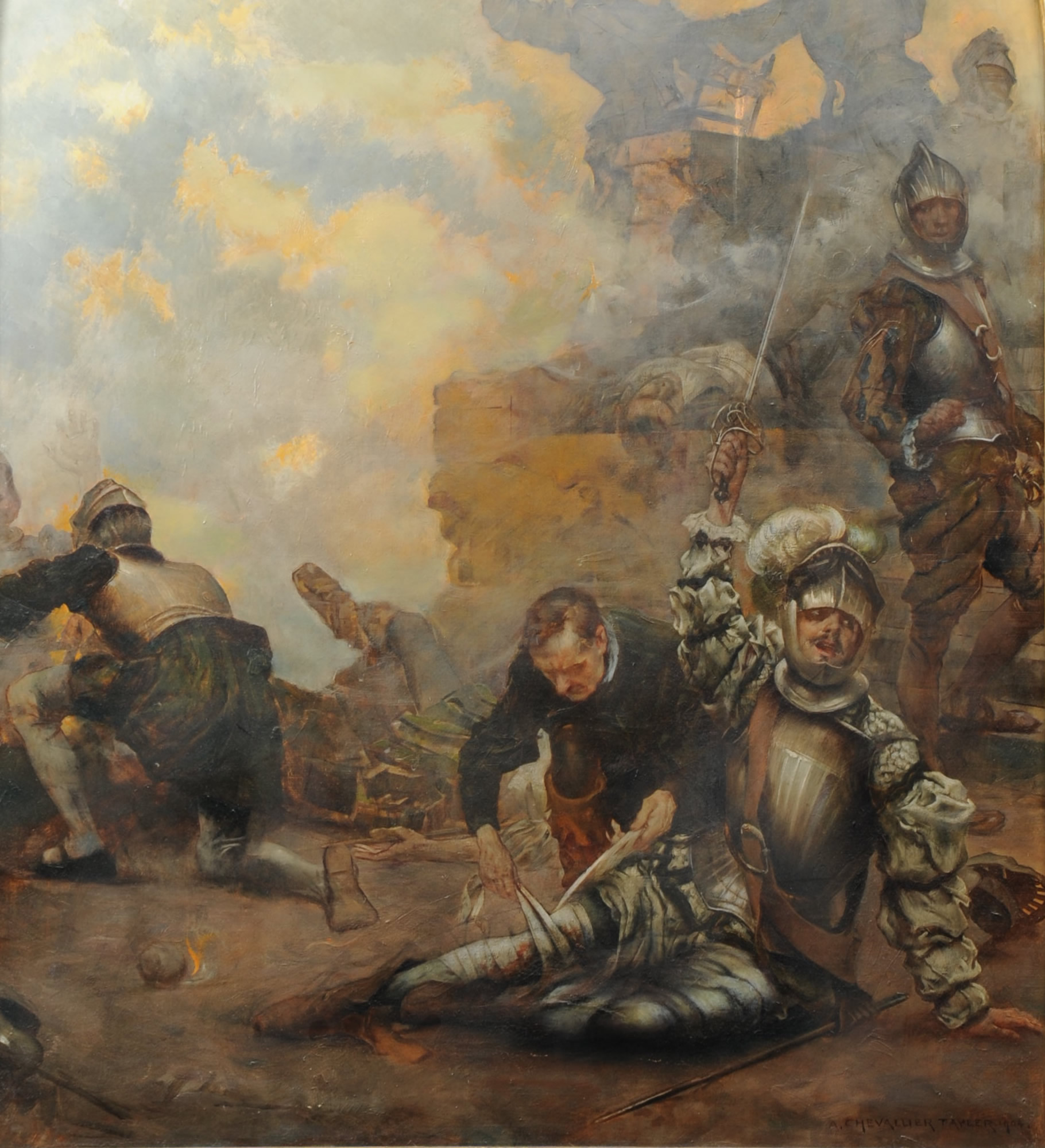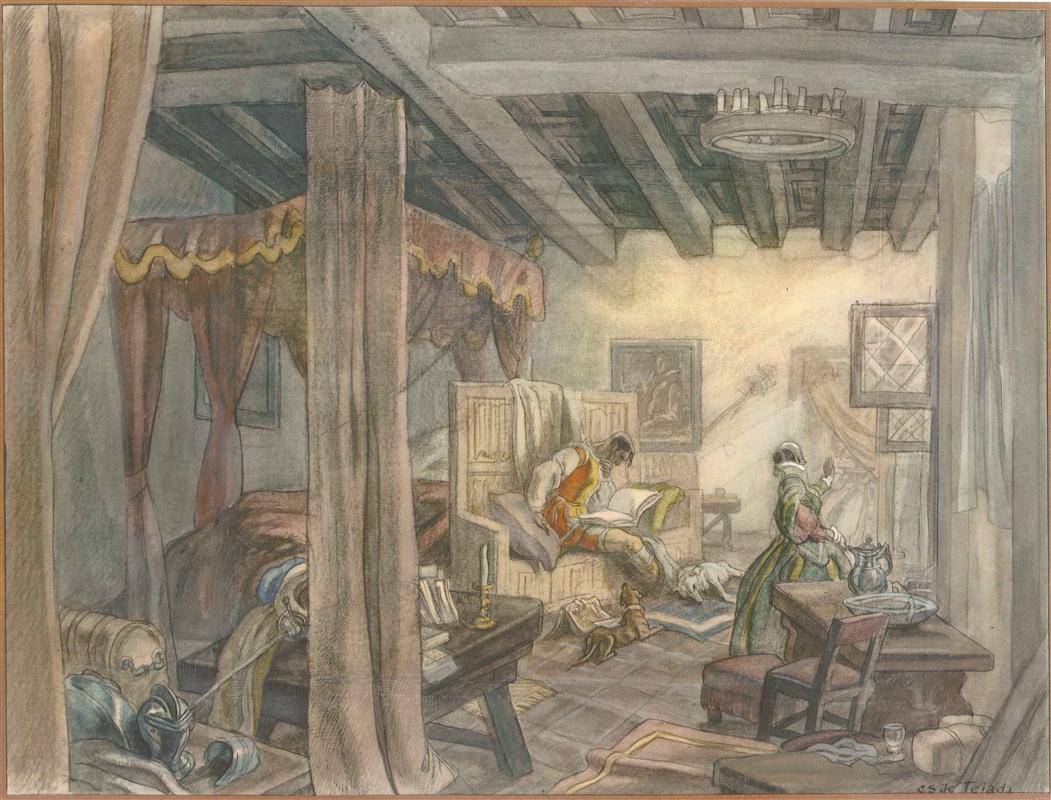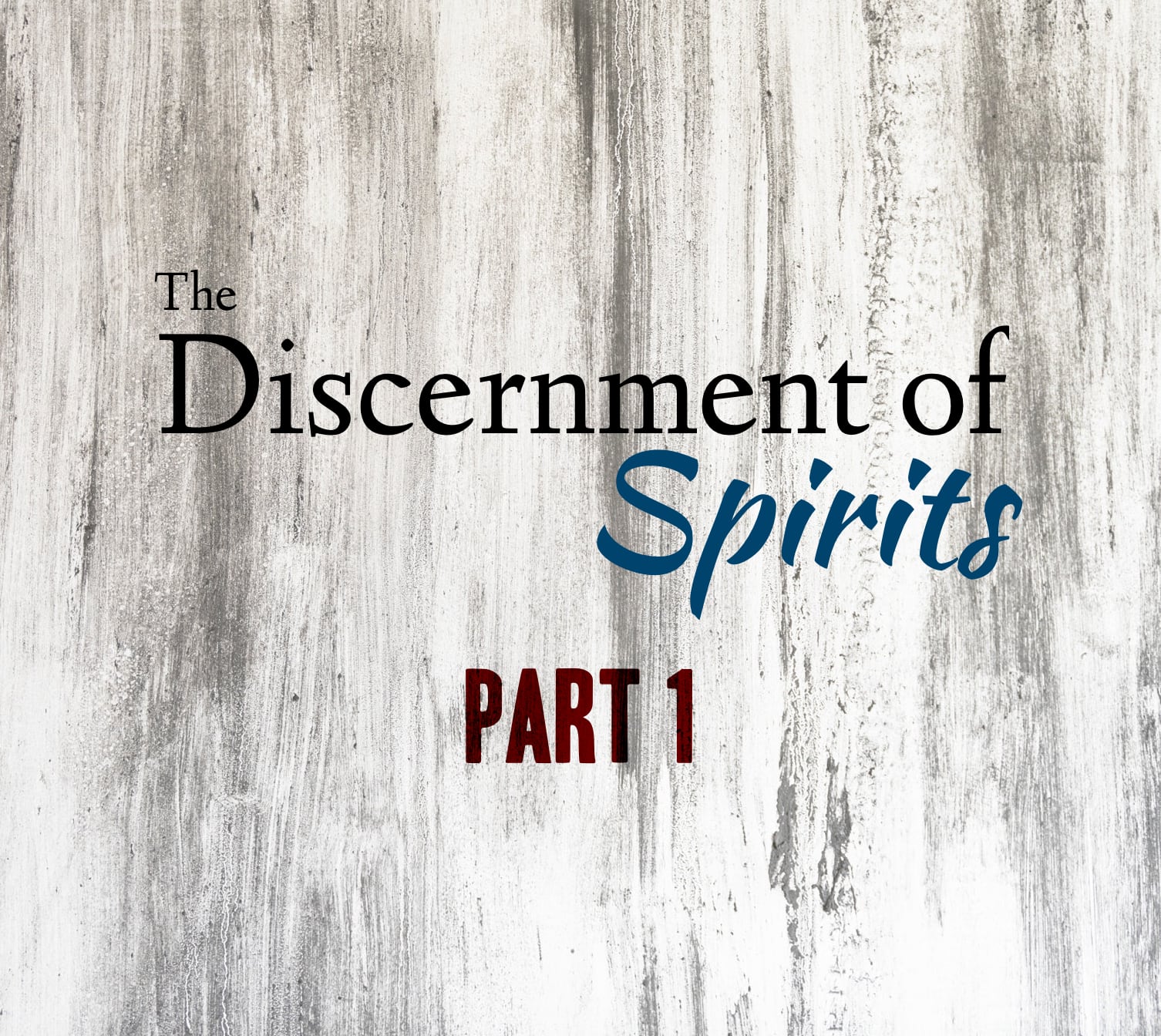This is part one of a three-part series on St Ignatius’ Rules for the Discernment of Spirits.
In the Spiritual Exercises Ignatius provides us with a list of what he calls the “Rules for the Discernment of Spirits”. These rules are not about making specific life decisions, but about exploring the interior movements that happen within us, between what Ignatius calls the good and evil spirits. They can aid us in making decisions better and more in line with God, but before we can make decisions well and use certain methods we first have to discern these various spiritual movements. We can’t make important decisions well if we aren’t attuned to how these spirits and interior movements work. In fact, this is the genesis of Ignatian discernment that is not always talked about in depth before getting to the practical weighing of real life choices and decisions.
Some Background
 What does this all mean? The discernment of spirits is something Saint Ignatius discovered while recovering from a battle wound. You may know that Ignatius of Loyola was a 16th century military governor in the Basque region of Spain. He lived an indulgent life, was known to be a ladies’ man, gambled, and used his power to control others. After a cannonball shattered his knee during a battle he lay in bed convalescing. This was after some excruciating surgeries to fix his leg. But the surgeries left him with a limp and a misshapen knee. This was not good for his pride or his vanity. So he had more excruciating surgeries to grind and set the bone so he would look more normal. These were cosmetic surgeries – without anaesthesia.
What does this all mean? The discernment of spirits is something Saint Ignatius discovered while recovering from a battle wound. You may know that Ignatius of Loyola was a 16th century military governor in the Basque region of Spain. He lived an indulgent life, was known to be a ladies’ man, gambled, and used his power to control others. After a cannonball shattered his knee during a battle he lay in bed convalescing. This was after some excruciating surgeries to fix his leg. But the surgeries left him with a limp and a misshapen knee. This was not good for his pride or his vanity. So he had more excruciating surgeries to grind and set the bone so he would look more normal. These were cosmetic surgeries – without anaesthesia.
So while he lay in bed recovering he asked to read the romance novels of his time, stories of gallant knights courting young women. Instead, the only reading material seemingly available was the life of Christ and the life of the saints. As he read those books he started to notice that he was attracted to the life of the saints, fighting, if you will, for Christ, for a greater cause. But at the same time he was dreaming of the indulgent life of pleasure and vanity he could have. So he went back and forth between thoughts of these two paths — one of virtue and for God, and the other of sin and selfishness. Both thoughts excited him, but he noticed that as time passed and the feelings settled down, there was a lingering attraction to living a life for Christ —there was a peace there. The other path left him feeling unsettled.

Ignatius convalescing after a battle wound, where he discovered God can use his feelings to communicate.
The Good and Evil Spirits
This was the beginning of Ignatian discernment: noticing what your feelings are doing. And as time went on Ignatius noticed different forces working on him, what he would call the good and evil spirits. He formed a list of ways these two spirits would work, how the good spirit would sting his conscience when he was moving away from God, but that if he were getting closer to God he would feel an increase of faith, hope, and love, and peace when considering a life for Christ. On the other hand, he’d notice the evil spirit encouraging him to move away from God, giving him excuses to continue in a life of sin. And when he attempted to live a life of virtue, the evil spirit would attempt to cause him to stray and turn from God.
So while Ignatius was pondering these two paths before him what he discovered was less about the choices themselves and more about the stirrings and tensions going on within him. He understood these as the forces of God and evil. Sometimes in Christian circles we hear the term “spiritual warfare”. I’m not a fan of the term personally, but Ignatius liked military terms. He saw what was going on within him as a battle between good and evil, fighting for his soul. In many ways these are the internal tensions of our human nature, our desire to good and live whole and authentic lives versus our desire to serve our egos.
The Ego, Apart from the Spirit
We need to notice the true self, the one God calls us to be. We need to notice the interior in order to find the spirit of God. It’s paradoxical in some ways to look within to find God—the transcendent—because the transcendent is not about our ego or the flesh. St Paul in his Letter to the Galatians (5:16-21) highlights the tensions between what Ignatius would call the evil and good spirits, the ego or false self, pulling us away from God, and the true self drawing us closer to God.
Live by the Spirit, I say, and do not gratify the desires of the flesh. For what the flesh desires is opposed to the Spirit, and what the Spirit desires is opposed to the flesh; for these are opposed to each other, to prevent you from doing what you want. But if you are led by the Spirit, you are not subject to the law. Now the works of the flesh are obvious: fornication, impurity, licentiousness, idolatry, sorcery, enmities, strife, jealousy, anger, quarrels, dissensions, factions, envy, drunkenness, carousing, and things like these. I am warning you, as I warned you before: those who do such things will not inherit the kingdom of God.
Now I want you to rid your mind of the idea of flesh as literally our bodily flesh or having to do with sexual immorality. The Greek word Paul uses for flesh is sarx. The closest meaning might be the word “ego” as we understand it. Franciscan Richard Rohr says that what Paul means by “flesh” is the trapped self, the small self, the partial self, or the false self. It’s what is opposed to God. The spirit is the true self, the whole self, the self that God is drawing us to be. Rohr says that we need to get away from the dualism of body versus spirit and understand this passage from Paul as calling us from our ego (our partial selves) to our whole selves. Rohr says, “Sarx or ego is the self that tries to define itself autonomously, apart from spirit, apart from the Big Self in God.”
So what Paul calls the “works of the flesh” using words like impurity, idolatry, jealously, anger, and factions are what Ignatius might call the temptations of the evil spirit or the traps of the selfish ego. Such things, Paul says, “will not inherit the kingdom of God.” They will do little to draw you closer to God.

Two Ignatiuses looking at one another, at Fairfield University. Perhaps he sees within himself the good and evil spirits.
Consolation and Desolation
That lingering feeling of peace and joy that Ignatius felt when he thought about a life for Christ is what he called consolation — a sense of being on fire with love for God, growing in faith, hope, and love, moving toward God. When Ignatius felt lingering disquiet and dissatisfaction with the other path of living a life of power and luxury, he experienced what he called desolation — a sense of God’s absence, agitation, moving away from God.
These two opposite experiences (consolation and desolation) became windows into the action of God. They are the foundation of the discernment of spirits. Over time, Ignatius wrote down his experience with the ways the good and the evil spirits worked within him, how they affected feelings of consolation and desolation, and how they stirred his heart and conscience.
The word we often use for the evil that is opposed to God is Satan or the Devil. We personify evil simply because it’s so real in our lives. It’s a felt force that can be easy to give in to. The Hebrew word satan, from which we get the “name” Satan, literally means adversary. The evil spirit is an adversary or an opponent, but it’s not so much an opponent to you and me; it’s an opponent to God, an opponent to the good spirit.
The good spirit, the Holy Spirit, on the other hand, is called an advocate by Jesus. What does an advocate do? Encourages us, has our back, doesn’t want us to beat ourselves up. You’ll see, when we discuss Ignatius’ actual rules for the discernment of spirits next week, how God’s advocacy comes through in this way. What’s comforting to know is that while the evil spirit is an adversary and opponent to the good spirit, the good spirit is our advocate, helping us resist the tactics of the evil spirit, which is trying to derail us. And the good spirit does so gently.
Next week we’ll begin looking at the specific rules for the discernment of spirits. If you recognise that you have specific important decisions ahead of you, that’s great. Ignatius’ rules will be very helpful in beginning to sense where God might be calling you. If not, his rules will help you grow in your awareness of how good and evil work uniquely in you.
Read part-two by clicking here.
Listen to the podcast version of this post…









Andy, thank you for this article! I find that you touch on points that have not been articulated in such a clear and easy to understand manner by other authors. I give retreats at Loyola Jesuit Center in Morristown, NJ and I give a Discernment day of prayer once a year, as well as the Spiritual Exercises. I will include your unique points! I also read Rohr and your mention of his definition to clarify ‘flesh’ is right on. As always, you’re on target! Blessings, Marie Santana
I enjoyed your podcast and will subscribe to hear the remaining parts!
I love the topic and right now I believe it is especially relevant. Thank you for putting it out there and spreading Ignatian Spirituality. Almost 500 years later and still resonates the gifts of the Holy Spirit.
On a technical note, as a hearing impaired person, the background music is lovely but makes it much more difficult to hear and focus on the message.
Have to agree with previous comment re background music being impediment. It is for me who also has hearing impairment.